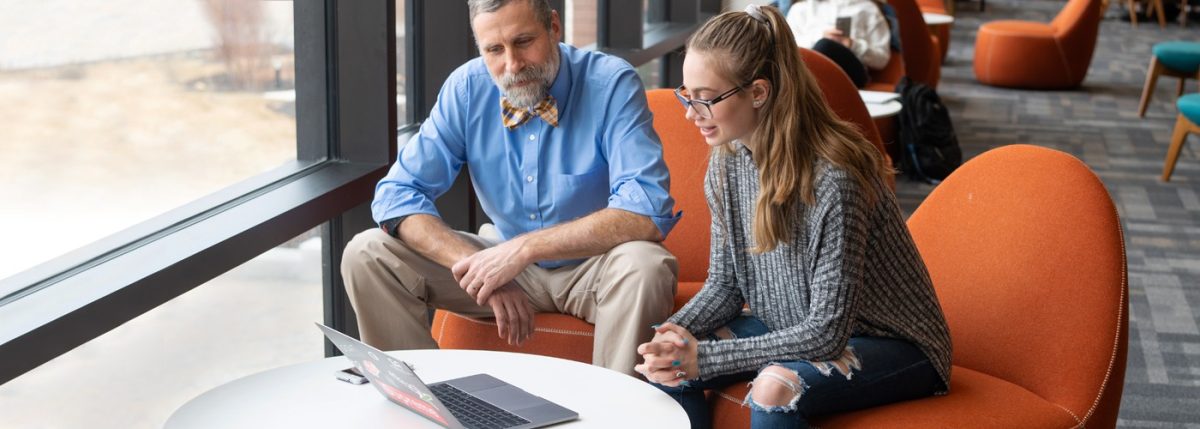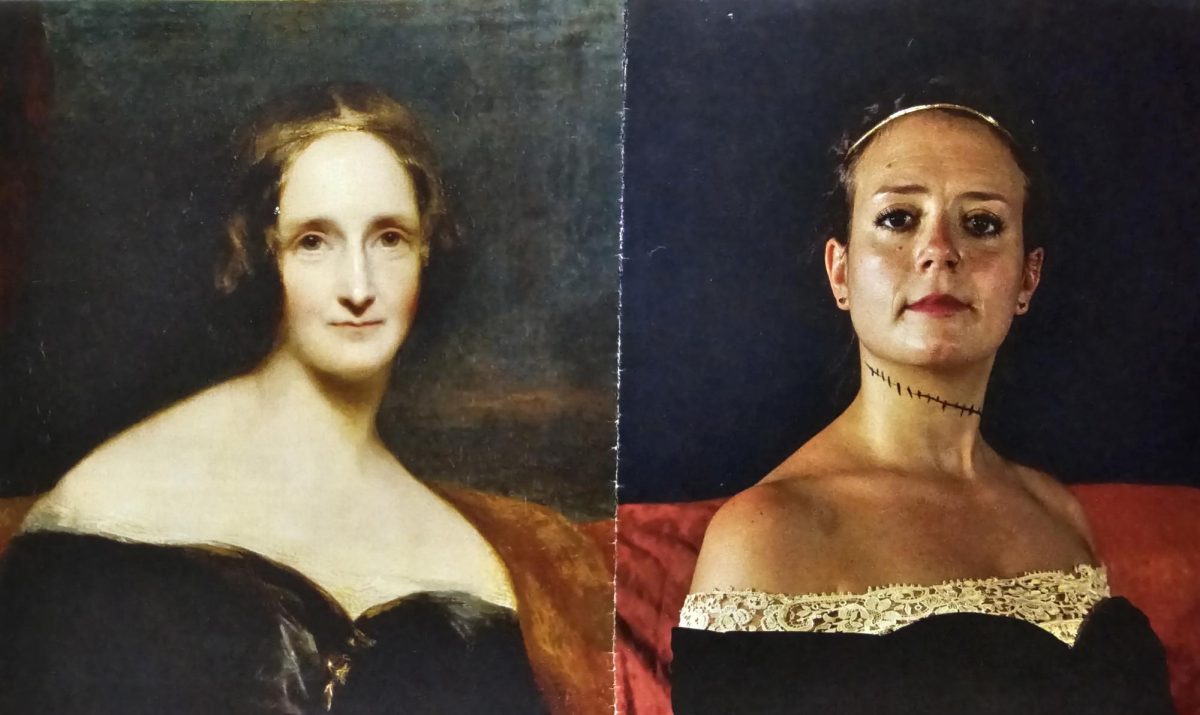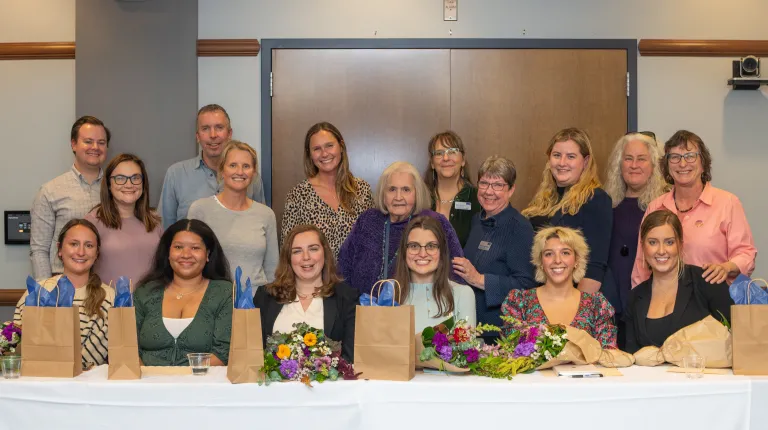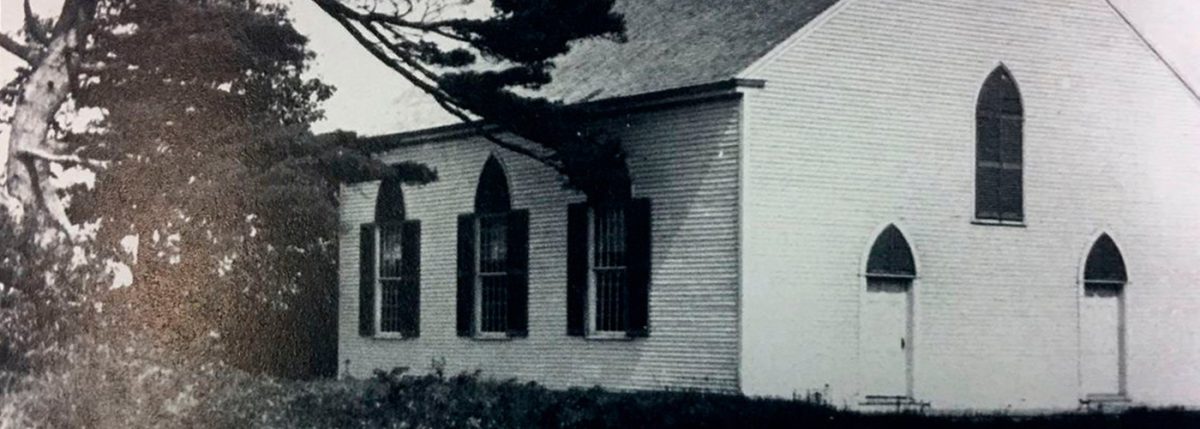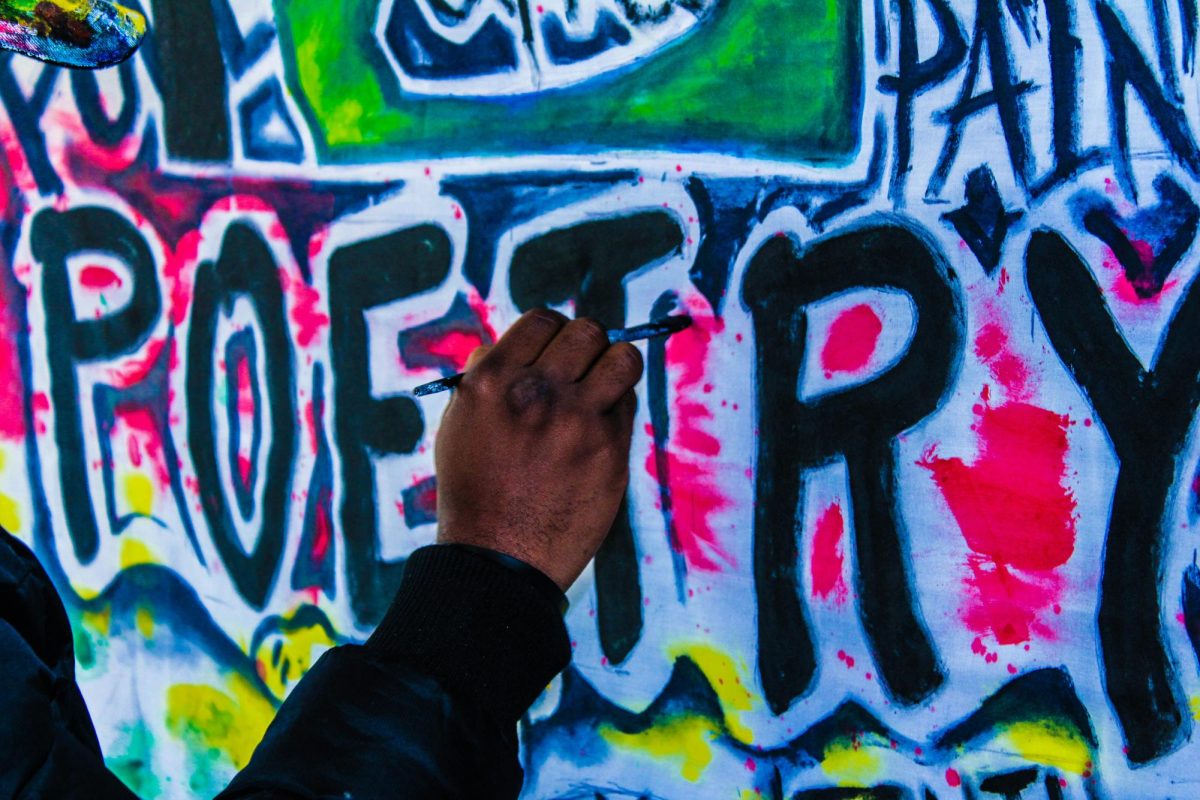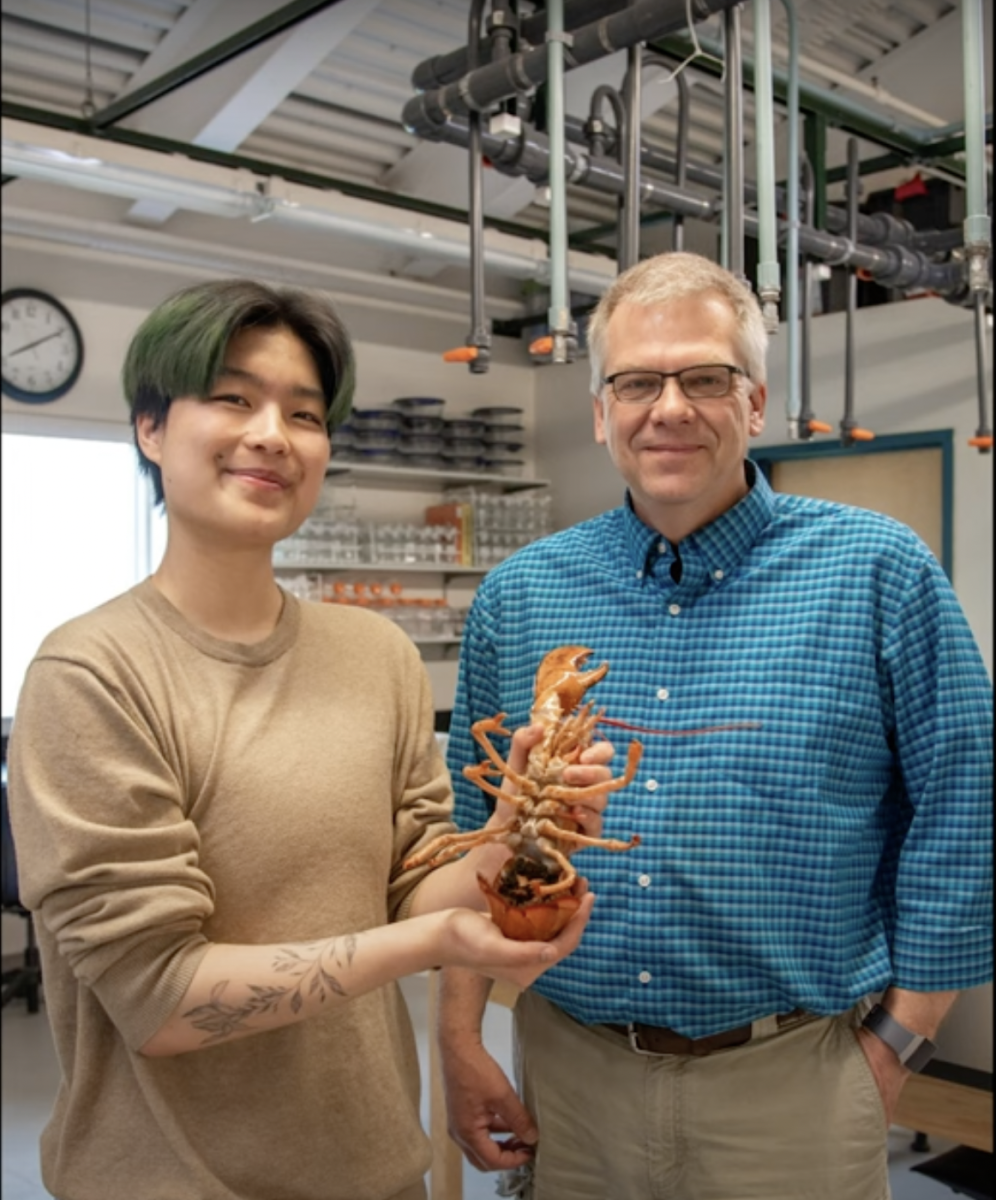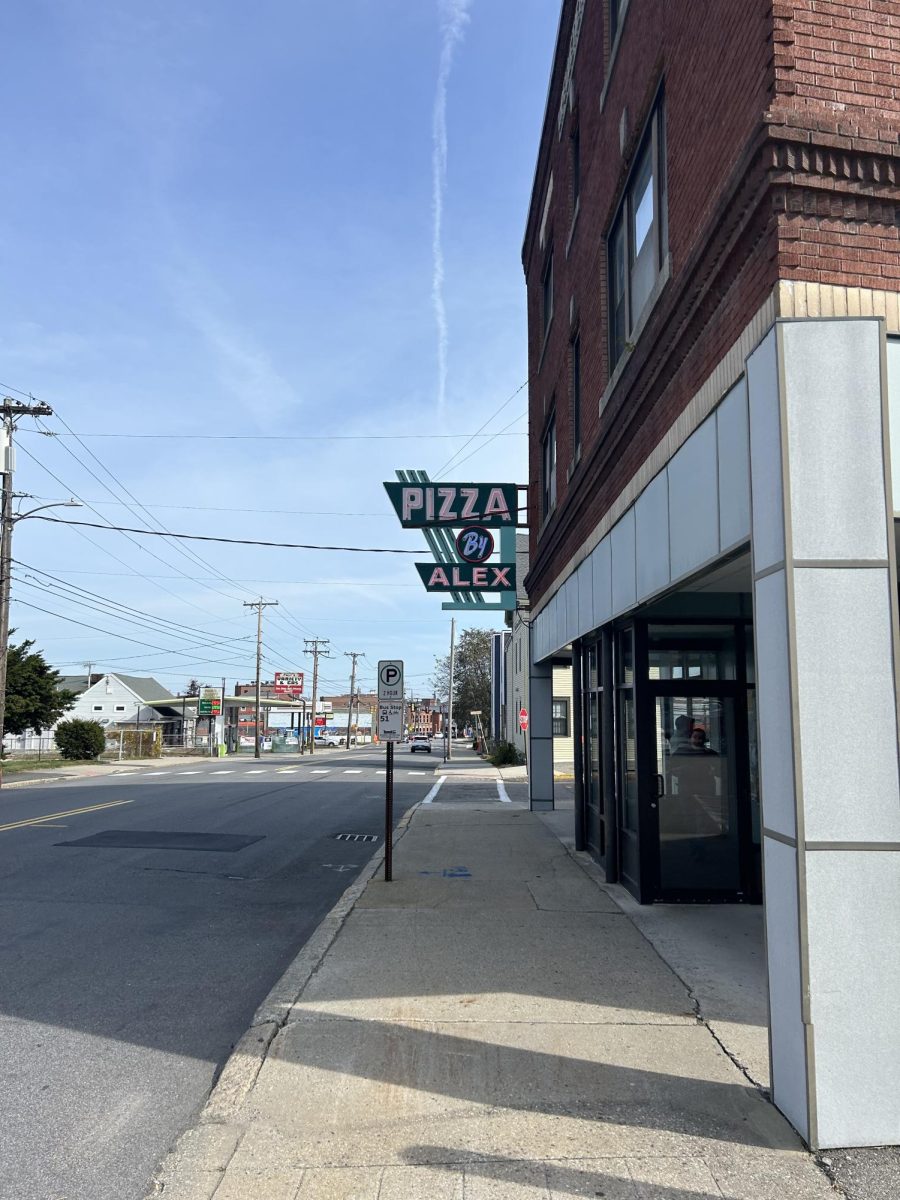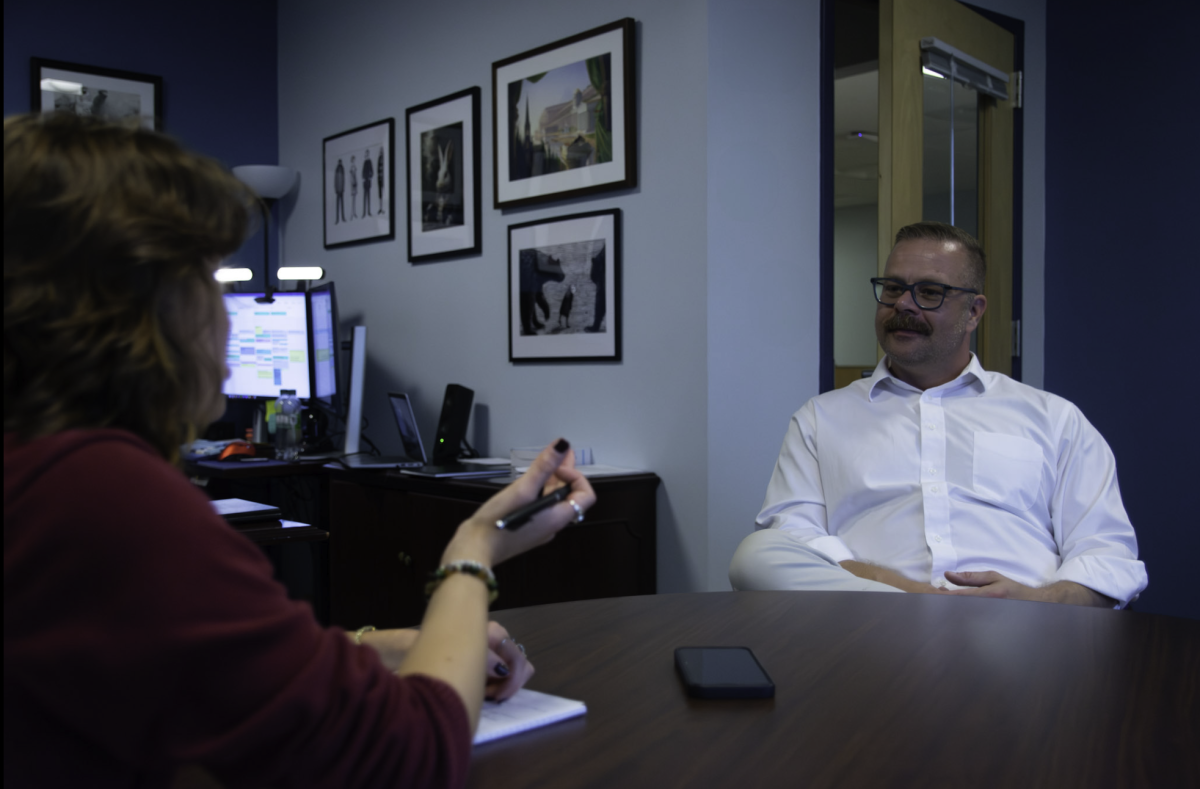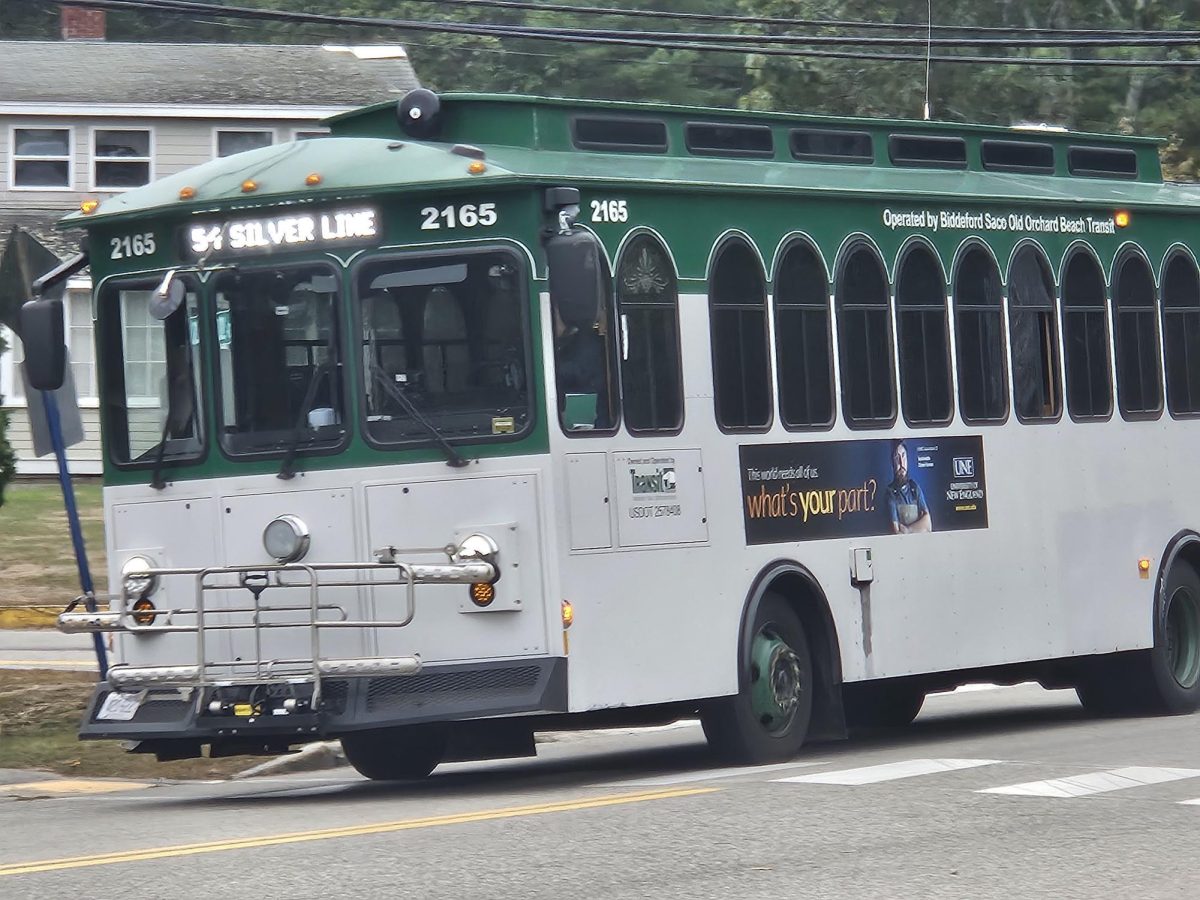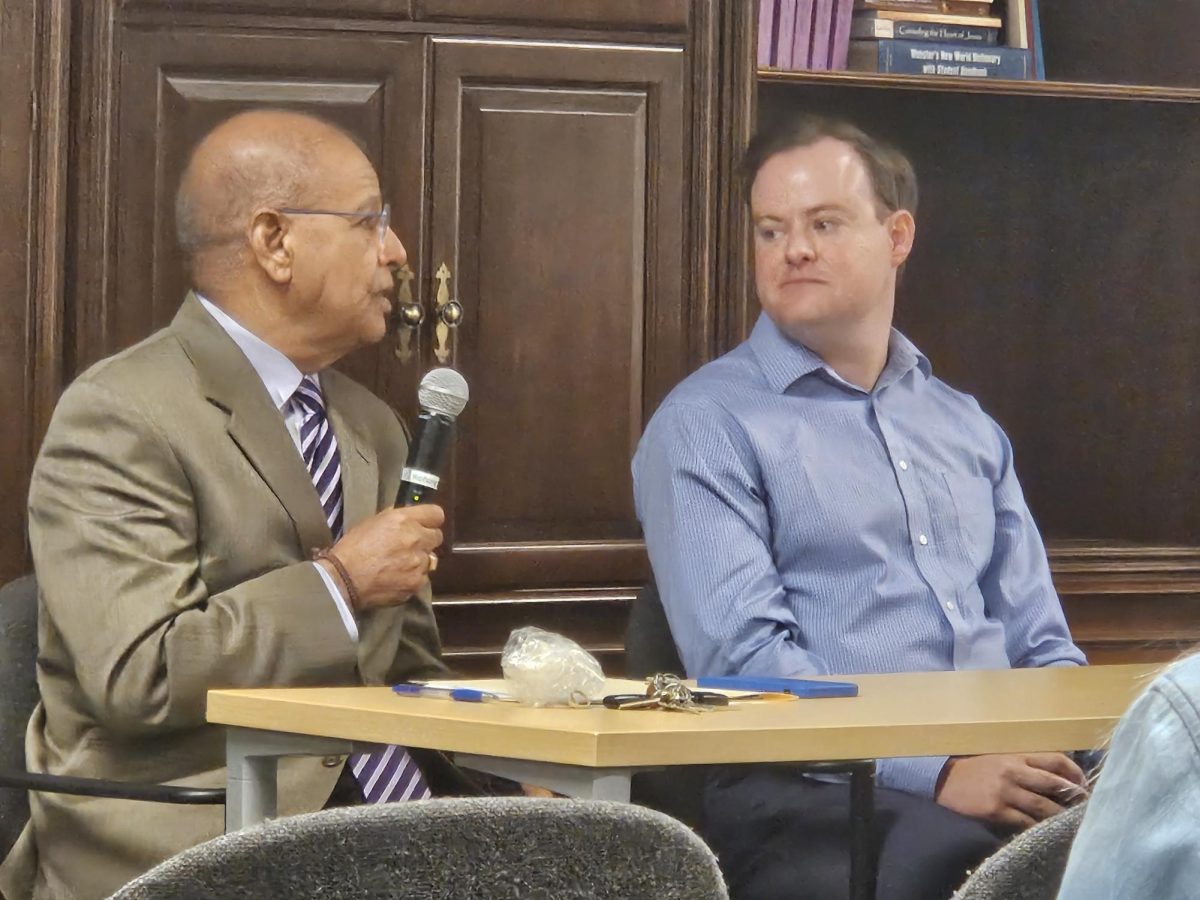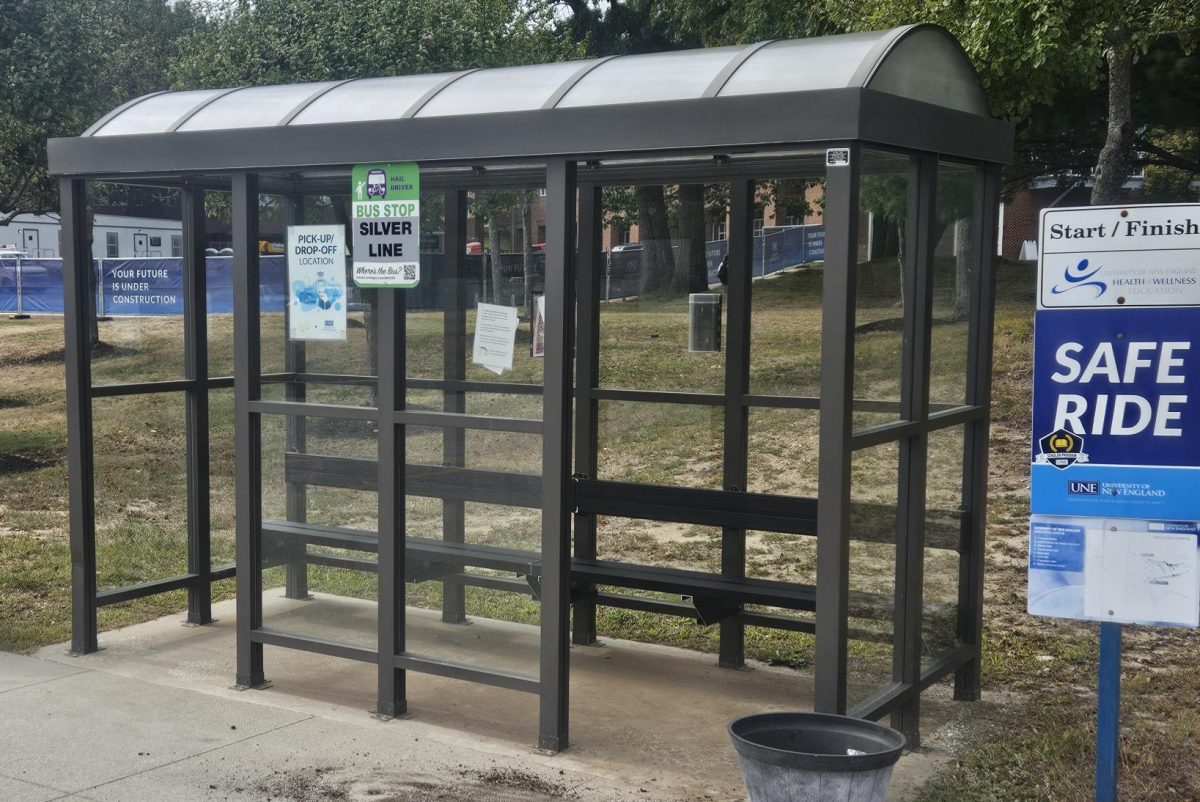Click Here to Listen:
Tempest is a student-run podcast that focuses on UNE’s School of Arts and Humanities on the Biddeford campus. Podcaster Chloe Boulle uses each episode to narrow in on topics including clubs, events, internship opportunities, extracurriculars, and the vibrant community that makes up UNE’s Biddeford campus.
Transcript (lightly edited for readability):
Chloe Boulle: Hello, and welcome to Tempest, a UNE Arts and Humanities podcast. Throughout your college career, you’re likely to be presented with many opportunities both in and out of the classroom. Here at UNE, one of the best opportunities for students outside of the classroom is an internship. No matter what your major is, an internship is a great way to get work experience, make connections, and explore your future career path. UNE works with an array of businesses and organizations across New England to provide internship opportunities for their students.
If you’re interested in an internship, a good place to start is with your advisor. Or if you’re an Arts and Humanities major or minor, you might also speak with your professors. Fellow student Mya Hankes talked to me about an experience she had early in her college career where her professors helped point her in the direction that would eventually lead her to her internship.
Mya Hankes: My name is Mya Hankes. I am a graduating senior communications and English double major, and I have minors in writing and gender, woman, and sexuality studies. I had professors who I was taking English classes with just, you know, the required ones. And I took one creative writing class my 2nd semester freshman year with Professor Brod. And he had actually approached me, and he was like, hey, I noticed just from having you as a student you really love writing. I noticed that you’re a strong writer as well. And, you know, what are your interests? Do you see this going somewhere? And he really kind of gave me that wake-up moment of, like, oh, writing is a thing that can be more than just a hobby.
Boulle: I also got the chance to talk with Lizzie Baker, an English major, writing minor, doing an internship with the Maine Women Writers Collection, about how the internship application process went for her.
Lizzie Baker: For my junior year, I wanted to have an internship, and I wasn’t sure exactly where. I had a couple recommendations from teachers recommending internships to me. I talked to Professor Cripps. I was like, I’d really like to look into an internship, but I’m not completely sure what I wanna do. He gave me a couple ideas. I told him some stuff that I am interested in: stories, history, English. I told him that I was interested in writing but not, like, nonfiction writing. There’s a bunch of internships that include, like, grant writing, and I was not into that. And then he was like, ‘oh, maybe you’d like the Maine Women Writers Collection. We could look into that.’ That one actually stuck in my mind. I was like, oh, now that would be really cool to do, like, actually work with the historical society, like, on campus. I initially was just like, ah, this could be fun and like a nice experience. And then I could add internship to my resume, you know? Which is really funny because now I’m thinking about possibly doing it as a career, which is crazy.
Boulle: As we heard from Lizzie, there are multiple ways to get an internship. As a student, you can make an appointment with your advisor to discuss the type of internship that would benefit you. You can also make an appointment with UNE’s internship coordinator to identify opportunities that fit your specific path and goals and begin the application process. There are always new and exciting opportunities as long as you’re interested. For example, student Emily Hedegard told me about the opportunity our Arts and Humanities department head, Doctor Michael J. Cripps, gave her when it came to her internship with the Portland Press Herald.
Emily Hedegard: Hi. My name is Emily Hedegard. I’m an English and communications double major with a minor in writing, and I’m a junior at the University of New England. So my internship with the Portland Press Herald actually kind of blossomed out of a really odd situation. So, Michael stumbled across an email from a man named Richard Watts, and he runs a community news center out of Vermont, and he reaches out to universities and colleges all across the country and tries to get them to do fellowships with local papers through one of his programs. And so Michael got in contact with Richard, and they set up a community news fellowship at UNE. And I applied for it, got in, and I was paired with the Portland Press Herald.
Boulle: So now you might be wondering whether you should do an internship or not. If you’re on the fence, Ryan Craig, writing for Forbes in the article, It’s Time for Colleges to Get Serious about Internships, cites this statistic: “Students who participate in internships are 49% less likely to be underemployed at graduation.” Another advantage of doing an internship is getting experience in your field of interest. Getting work experience before graduation in the field you wish to enter is invaluable. And, at a school like UNE, our close-knit community and amazing faculty are going to work really hard to find an internship that’s a good fit for you. Emily Hedegard talked to me about this.
Hedegard: You get such one-on-one time with all of the professors. I feel like I’ve gotten more opportunities, and I have way more clips and work for my portfolio than I ever would have at any of the big-name schools that I was trying to get into. I was so anxious, I was even thinking about transferring after a couple years, but I’m so glad I didn’t because now I have all these wonderful opportunities and I’ve gotten to write for the Press Herald, which if I had gone to Bowdoin or Harvard or another school that’s known for their journalism, I could have applied for the Press Herald. I might have gotten one of the summer internship positions, but then I’d be one of four interns. I wouldn’t have any clips with them, it would just be like little clerical work things, so this has been just wonderful. Yeah.
This is the first time they’ve had an intern during the school year. The Press Herald only ever has interns during the summer, so they didn’t really know what to do with me. Usually, the interns will just work with one editor, but I work with all of the Press Herald editors, as well as any staff who may need help. So I really do everything and anything that they need me to. It’s a good learning experience for me. I am an incredibly anxious person, and so learning how to manage different types of people and some of those, like, in the news newsroom, in the office, soft skills have been really important. Something I always go to, something I learned really quickly, is some people like it when you say hey, hi, or hello. Some people want something a little more formal. And so even just the little language things and the way you approach people can make such a huge difference. And I’m learning how to be professional and have that kind of fun at the same time.
Boulle: Let’s finish off by hearing what you might be doing at an internship. Lizzie and Mya both shared their experiences with me, so I’ll let them tell you. Lizzie?
Baker: My internship is with the Maine Women Writers Collection. They’re on the Portland campus, Westbrook campus. My main responsibility, my main goal through the internship, is to transcribe the diary of a girl who lived in Maine from 1896. Her name is Lucy May Leighton, and she went to Westbrook College when it was still a seminary school. The collection found, like, a whole diary of just, you know, it’s just like a year of her life.
Boulle: And Mya?
Hankes: I started interning with The Telling Room, which is a writing nonprofit based out of Portland and serves pretty much all of Southern, Central, and Northern Maine in terms of workshops, after-school programs, and, sometimes, in-school residencies. When I started there back in January, I joined one after-school program called Wordplay for writers who are seven to ten years old. And basically, it’s just an almost like an exposure sort of after-school program just getting them used to creative writing in all of its different forms. So, different weeks focused on different kinds. We did everything from poetry to memoir to just your basic flash fiction. Sometimes we integrated music, sometimes art was integrated, a little bit of theater at moments, games were played. And really, it was probably the highlight of the experience so far for me. Because we were able to spend the ten consecutive weeks together, I was able to form a really great relationship with, I think, all 18 of the writers in the room. And then, of course, my co-teacher, Jack Gendron, who basically was kind of like my mentor. I also have done workshops and one residency at York High School, which focused on poetry with four 10th-grade classes. By the end, each student chooses a poem, and it gets published in a book that actually goes through a real publishing process. Through the telling room, they have a publishing house that they work with. Just to name where else I’ve been, I’ve been up to Brunswick Elementary School. I’ve been to Portland Elementary and Middle School. But I’ve definitely been kinda all up and around Maine working with them, and then it’s been really exciting.
Boulle: I hope you enjoyed today’s podcast. And I just want to say: If you’re interested in an internship, don’t let your worries and anxieties hold you back. Your college experience only happens once, and who knows? An internship might take you somewhere you never expected.
Thank you to Mya Hankes, Emily Hedegard, and Lizzie Baker for talking with us today, and thank you for listening. My name is Chloe Boulle, and the music for today’s podcast was Vibrant Adventures by Universe Field.



